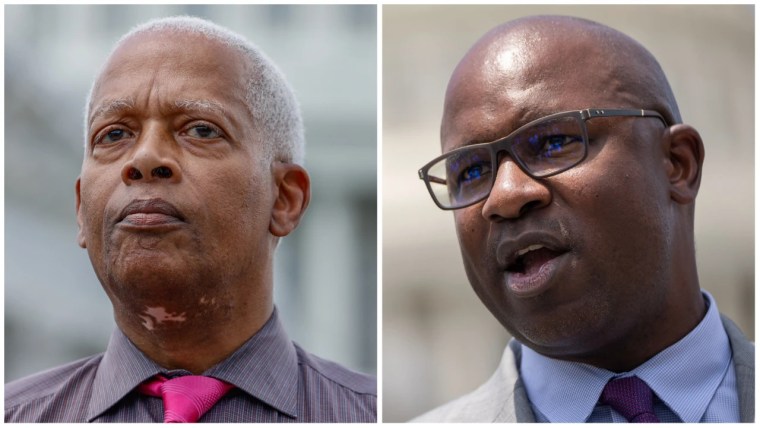 Left: Rep. Hank Johnson (D-GA). Photo by Jemal Countess/Getty Images. Right: Rep. Jamaal Bowman (D-NY). Photos by Drew Angerer/Getty Images.
Left: Rep. Hank Johnson (D-GA). Photo by Jemal Countess/Getty Images. Right: Rep. Jamaal Bowman (D-NY). Photos by Drew Angerer/Getty Images.
Last July, Reps. Hank Johnson and Jamaal Bowman (Democratic congressmen from Georgia and New York, respectively) brought a bill to the House of Representatives that would severely limit prosecutors’ ability to use rap lyrics as evidence of criminality. If passed, the Restoring Artist Protection (RAP) Act would seal similar statewide efforts such as New York’s Rap Music On Trial bill and California’s AB 2799 into federal law, adding (per a press release issued alongside the bill’s initial introduction to Congress) “a presumption to the Federal Rules of Evidence that would limit the admissibility of evidence of an artist’s creative or artistic expression against that artist in court.”
The RAP Act stagnated after a referral to the House Subcommittee on Crime, Terrorism, and Homeland Security in November. But today (Thursday, April 27), Johnson and Bowman have reintroduced the bill, holding a press conference along with representatives of Black Music Action Coalition (BMAC), the Recording Academy, the Black Music Collective, SAG-AFTRA, and other First Amendment groups, Pitchfork reports.
In courts across America, rap lyrics are used more damningly than any art form. This long-running phenomenon returns to the national news cycle periodically and is currently experiencing renewed scrutiny due to the Georgia RICO indictment of high-profile Atlanta rappers Young Thug and Gunna along with 26 other alleged members of the Young Slime Life crew.
In a speech at today’s press conference, BMAC co-founder and chairman Willie “Prophet” Stiggers pointed to lesser-known examples of rap on trial. According to Pitchfork, Stiggers cited the cases of Derek Foster, who was convicted on drug charges in 1991 after federal prosecutors used hand-written lyrics found in his notebook to strengthen their argument; and Jonair Tyreece Moore, who was found guilty of similar crimes in 2011 after U.S. attorneys were allowed to play more than 20 minutes of irrelevant music video footage in order to “show his knowledge of drug distribution and his motive for engaging in it.”